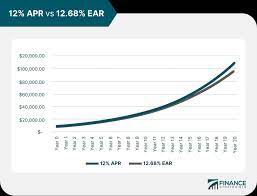Introduction
In the ever-evolving landscape of business finance, US Factoring Companies have emerged as a crucial player, providing a lifeline for small and medium-sized enterprises (SMEs) to access immediate working capital. As businesses seek alternative funding solutions beyond traditional bank loans, factoring companies have gained prominence for their quick, flexible, and hassle-free financing options. In this blog post, we will explore the fundamentals of factoring, delve into the various types of factoring, examine the benefits and drawbacks, and shed light on how US factoring companies operate within the business ecosystem.
Understanding Factoring

Factoring, in its simplest form, is a financial transaction wherein a company sells its accounts receivable to a third-party entity, known as a factor, at a discounted rate. The factor assumes the responsibility of collecting payments from the debtor, allowing the business to obtain immediate funds that can be reinvested into operations. Factoring, as a financial tool, addresses the common issue of slow-paying customers and the consequent cash flow gaps that can cripple a business.
A factoring company is a financial institution that provides a specialized form of business financing by purchasing accounts receivable (unpaid invoices) from businesses at a discounted rate. By doing so, the factoring company offers immediate cash flow to the business, allowing them to access working capital without waiting for customers to pay their invoices. The factoring company assumes responsibility for collecting payments from the debtors directly. Factoring is particularly beneficial for businesses facing cash flow challenges due to slow-paying customers or rapid growth. It provides a quick and flexible funding solution, enabling businesses to meet operational expenses, pursue growth opportunities, and offload credit risk to the factoring company.
Types of Factoring
a) Recourse Factoring:
Under recourse factoring, the business selling its accounts receivable remains liable for any unpaid invoices. If the debtor fails to pay, the responsibility falls back on the company to buy back the debt from the factor. This type of factoring is typically cheaper since the risk is shared between the business and the factor.
b) Non-Recourse Factoring:
Non-recourse factoring, on the other hand, shifts the risk entirely to the factor. In this scenario, if the debtor defaults on payment, the factor absorbs the loss, and the business is not obligated to repurchase the debt. Due to the higher risk borne by the factor, non-recourse factoring generally comes with higher fees.
The Role of US Factoring Companies
US Factoring Companies have carved a niche for themselves by offering tailored financial solutions that cater to the unique needs of diverse industries. These companies act as intermediaries between businesses seeking immediate cash flow and investors seeking profitable opportunities. Their primary roles include:
a) Cash Flow Support:
Factoring companies bridge the gap between invoice issuance and actual payment, providing businesses with instant cash flow. This infusion of working capital enables companies to meet operational expenses, expand their ventures, and undertake growth initiatives.
b) Credit Management and Collections:
Factoring companies typically have robust credit analysis and collection mechanisms in place. They evaluate the creditworthiness of debtors before accepting invoices and assume the responsibility of pursuing timely payments. This relieves businesses of the burden of chasing payments and minimizes the risk of bad debt.
c) Customized Financing Solutions:
US Factoring Companies understand that each business has unique requirements. They offer personalized financing solutions that cater to the specific needs of different industries, ensuring that businesses receive the most suitable funding options.
d) Risk Mitigation:
Factoring companies diversify their portfolios across various industries and clients, reducing the risk exposure of individual factors. This diversification enhances the overall stability of the factoring industry.
Pros and Cons of Factoring
As with any financial arrangement, factoring comes with its share of advantages and disadvantages:
a) Pros:
i. Quick Access to Capital: Factoring offers swift access to funds without the lengthy approval processes associated with traditional bank loans.
ii. No Debt Incurred: Factoring is not a loan; it involves the sale of accounts receivable, thereby avoiding additional debt on the balance sheet.
iii. Improved Cash Flow: By converting receivables into cash, businesses can maintain smooth cash flow and seize growth opportunities.
iv. Credit Risk Offloading: Factoring companies assume the responsibility of credit risk, protecting businesses from potential defaults.
v. Flexible Arrangements: Factoring agreements can be tailored to meet specific financial needs, offering businesses greater flexibility.
b) Cons:
i. Cost: Factoring fees can be higher compared to traditional financing options, impacting a business’s bottom line.
ii. Customer Relationships: Since factoring companies interact directly with customers for payment collection, there may be concerns about customer relations.
iii. Not Suitable for All Industries: Factoring may not be viable for businesses with long payment cycles or a small number of high-value invoices.
iv. Limited International Coverage: Factoring companies may have limited reach and coverage in certain international markets.
Choosing the Right Factoring Company

Selecting the appropriate US factoring company is crucial for maximizing the benefits of factoring while mitigating potential drawbacks. Here are some key factors to consider:
a) Reputation and Experience: Look for well-established factoring companies with a proven track record of reliability and customer satisfaction.
b) Industry Expertise: Opt for a factoring company familiar with your industry’s specific needs and challenges.
c) Fee Structure: Analyze the fee structure and compare it with other factoring companies to ensure you are getting a competitive deal.
d) Contract Terms: Thoroughly review the contract terms, including the recourse or non-recourse provisions, to understand the implications for your business.
e) Customer Support: Evaluate the level of customer support and responsiveness offered by the factoring company.
Conclusion
US Factoring Companies play a pivotal role in supporting the growth and sustainability of businesses across various sectors. Their flexible financing solutions, efficient credit management, and risk mitigation strategies have positioned them as a viable alternative to traditional bank loans. While factoring may not be suitable for every business, those grappling with slow-paying customers and cash flow challenges can find a lifeline in the services provided by reputable factoring companies. As the financial landscape continues to evolve, factoring is likely to remain a crucial pillar of support for SMEs seeking to thrive in the competitive business world.

